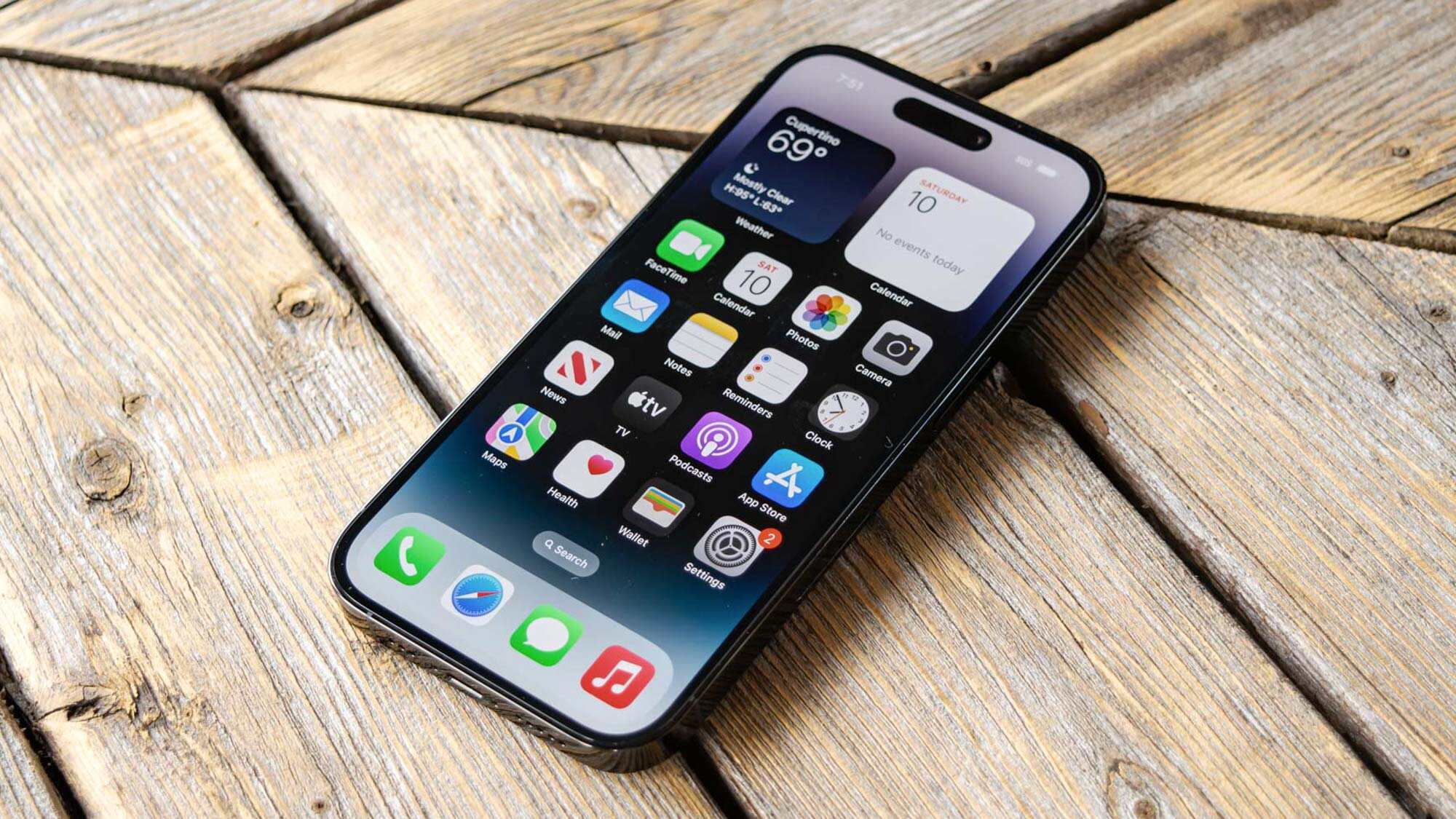
The iPhone has become an iconic symbol of innovation and technological advancement since its launch in 2007. With its sleek design, powerful features, and user-friendly interface, the iPhone has captured the imagination of millions of users worldwide. In this article, we will delve into 14 amazing facts about the iPhone that showcase its impact on the tech industry and its cultural significance. From its revolutionary introduction of the App Store to its cutting-edge Face ID technology, the iPhone has continuously redefined the way we interact with mobile devices. Join us as we explore the fascinating world of the iPhone and uncover the remarkable features and milestones that have solidified its status as a game-changing device.
Key Takeaways:
- The iPhone revolutionized communication and technology with its groundbreaking features, from the Retina display to the A-series chips, shaping the way we interact with our devices.
- Apple’s commitment to accessibility and environmental impact, along with the iPhone’s cultural influence, showcases its significance beyond just being a smartphone, impacting modern life in various ways.
The First iPhone was Released in 2007.
In 2007, Apple revolutionized the mobile phone industry with the launch of the first iPhone. This groundbreaking device combined a phone, an iPod, and an internet communicator into one, changing the way people communicate and access information.
The iPhone Was Developed Secretly.
Apple's development of the iPhone was shrouded in secrecy, with a small team working on the project under intense security. The level of secrecy surrounding the development of the iPhone was unprecedented in the tech industry.
The iPhone's Original Code Name was "Project Purple."
During its development, the iPhone was known by the code name "Project Purple." This name reflected the aura of mystery and innovation that surrounded the device during its creation.
The iPhone's Operating System is Known as iOS.
The iPhone operates on Apple's proprietary mobile operating system, iOS. This intuitive and user-friendly platform has evolved over the years, offering enhanced features and functionality with each new iteration.
The iPhone's Retina Display Offers Stunning Visuals.
The iPhone's Retina display, first introduced with the iPhone 4, boasts a high pixel density that renders images and text with incredible clarity. This feature has set a new standard for display quality in the smartphone industry.
The iPhone 11 Pro Max Has Three Rear Cameras.
With the iPhone 11 Pro Max, Apple introduced a triple-camera system, offering wide, ultra-wide, and telephoto lenses. This advanced camera setup allows users to capture stunning photos and videos with enhanced versatility.
The iPhone Supports Face ID for Secure Authentication.
The iPhone X introduced Face ID, a facial recognition system that provides a secure and convenient method for unlocking the device and authenticating transactions. This innovative feature has since been integrated into subsequent iPhone models.
The iPhone 12 Series Features 5G Connectivity.
Apple's iPhone 12 series marked the company's foray into 5G technology, providing users with faster download and upload speeds, improved streaming quality, and a more responsive mobile experience.
The iPhone SE Offers Affordability Without Compromising Performance.
Catering to budget-conscious consumers, the iPhone SE delivers impressive performance and features at a more accessible price point, making the iconic iPhone experience attainable for a wider audience.
The iPhone's A-Series Chips Power Its Performance.
Apple's A-series chips, featured in iPhones, are renowned for their exceptional performance and energy efficiency. These custom-designed processors enable seamless multitasking and enhanced gaming experiences.
The iPhone Has a Robust App Ecosystem.
The App Store offers a vast selection of apps tailored to the iPhone, catering to diverse interests and needs. From productivity tools to entertainment, the iPhone's app ecosystem continues to enrich the user experience.
The iPhone's Environmental Impact is a Key Focus for Apple.
Apple is committed to reducing the environmental impact of its products, including the iPhone. The company has implemented initiatives to minimize carbon emissions and utilize recycled materials in iPhone manufacturing.
The iPhone's Accessibility Features Empower Users.
Apple prioritizes accessibility, integrating features such as VoiceOver, Magnifier, and Live Listen into the iPhone to enhance usability for individuals with disabilities. These tools empower users to navigate and interact with their devices more effectively.
The iPhone's Influence Extends Beyond Technology.
The iPhone has had a profound cultural and societal impact, shaping how people communicate, consume media, and conduct business. Its influence extends far beyond technology, permeating various aspects of modern life.
These "14 Amazing iPhone Facts" showcase the innovation, evolution, and impact of Apple's iconic device, highlighting its significance in the realm of technology and beyond.
Conclusion
In conclusion, these 14 amazing iPhone facts shed light on the incredible journey of Apple's iconic device. From revolutionizing the smartphone industry to pushing the boundaries of innovation, the iPhone has left an indelible mark on technology and society. Its evolution, from the original iPhone to the latest models, showcases Apple's commitment to excellence and user experience. The impact of the iPhone extends beyond its features and design; it has transformed the way we communicate, work, and engage with the world. As we look to the future, it's evident that the iPhone will continue to shape the landscape of mobile technology, inspiring new possibilities and redefining what a smartphone can achieve.
FAQs
Q: What was the first iPhone released by Apple?
A: The first iPhone, known as the iPhone 2G or iPhone 1, was released by Apple on June 29, 2007.
Q: How has the iPhone influenced the smartphone industry?
A: The iPhone has significantly influenced the smartphone industry by setting new standards for design, user interface, and functionality. Its introduction marked a pivotal moment in the evolution of mobile technology, shaping the future of smartphones and inspiring countless innovations.
Impressed by iPhone's incredible journey? Curious minds might wonder about eco-friendly options like the green iPhone 13, perfect for nature lovers. Style enthusiasts could appreciate the sleek design of iPhone Xs Max cases, blending form and function seamlessly. Busy professionals on the go may find iPhone Xs cardholder Max cases indispensable, keeping essentials organized in one place. Whichever aspect of the iPhone world piques your interest, there's always more to explore and discover.
Was this page helpful?
Our commitment to delivering trustworthy and engaging content is at the heart of what we do. Each fact on our site is contributed by real users like you, bringing a wealth of diverse insights and information. To ensure the highest standards of accuracy and reliability, our dedicated editors meticulously review each submission. This process guarantees that the facts we share are not only fascinating but also credible. Trust in our commitment to quality and authenticity as you explore and learn with us.


